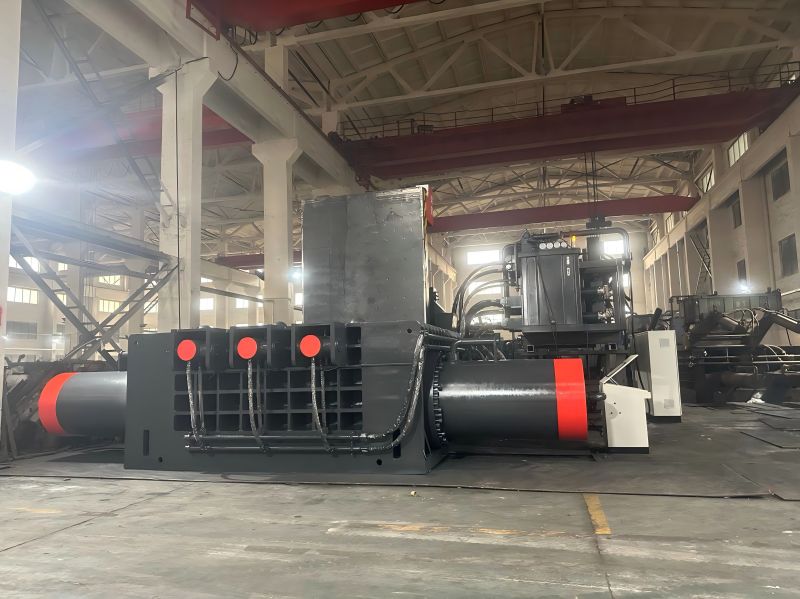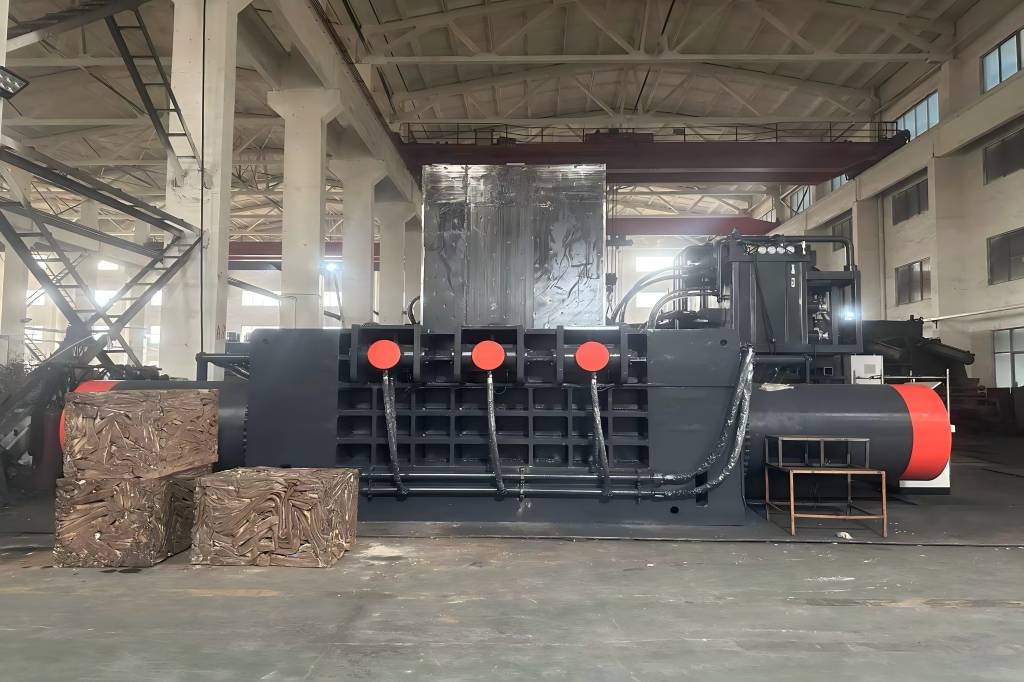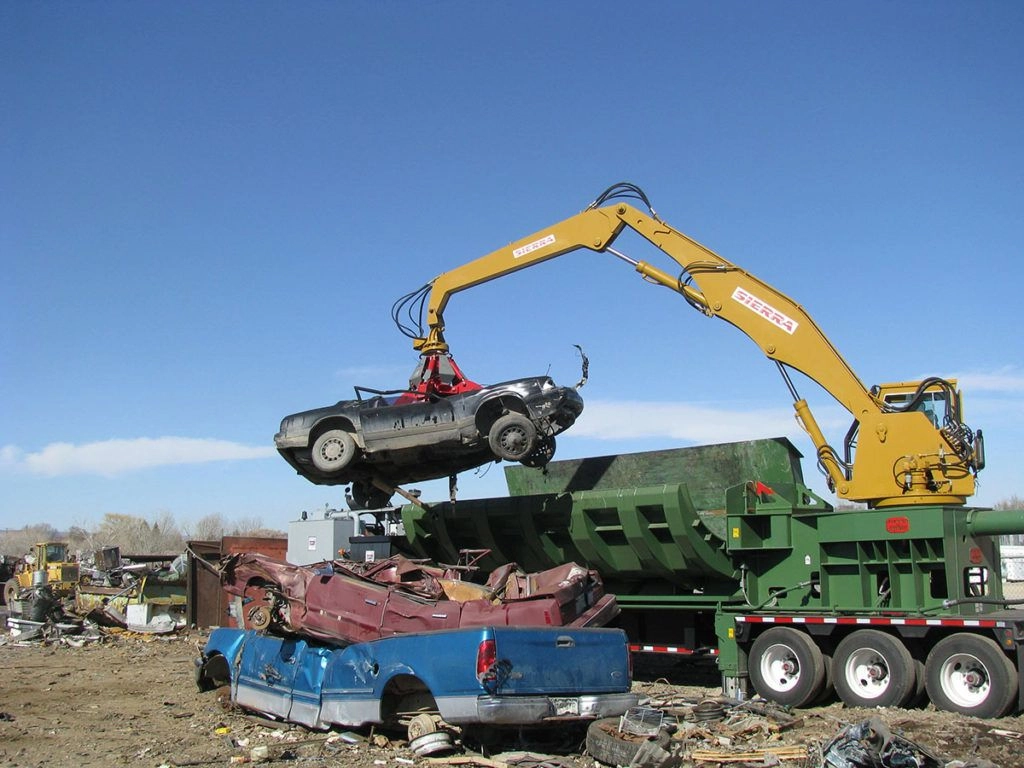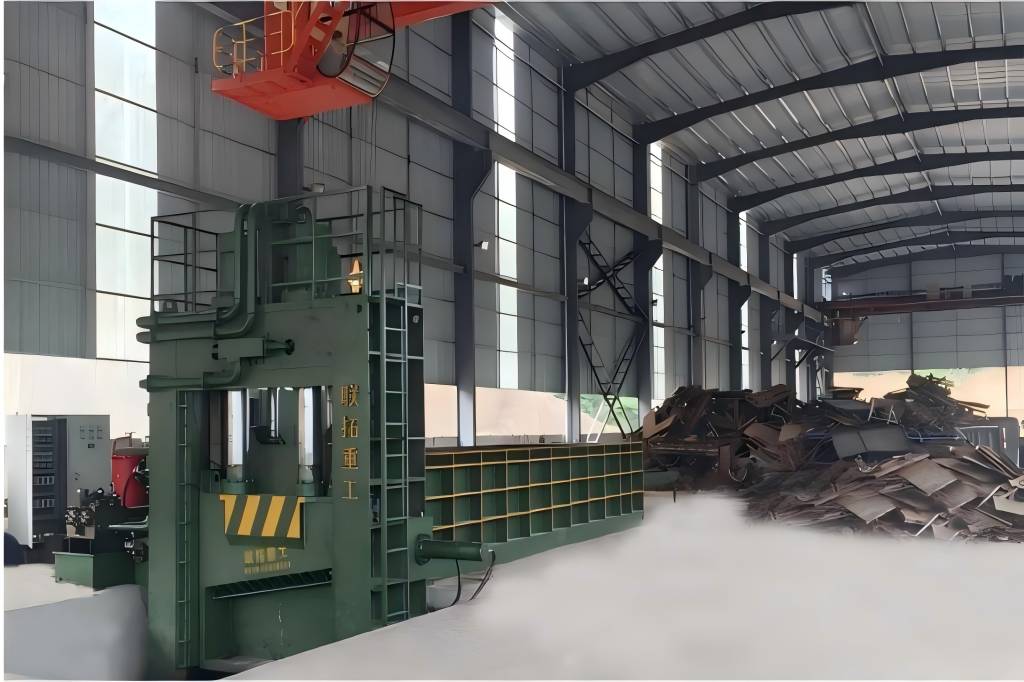Metal balers play a crucial role in the recycling and scrap processing industry by compressing large volumes of metal waste into compact, manageable bales.
Growing demand for sustainable recycling has driven advancements in metal baler technology, enhancing automation, productivity, and safety. Innovations in hydraulics, controls, and smart monitoring improve efficiency and reduce costs.
The Evolution of Metal Baler Technology
Metal balers have evolved significantly from manual and semi-automatic models to highly sophisticated automated systems. Early balers required extensive human intervention, from loading and compressing to tying and ejecting the bales.
Today, fully automated metal balers can handle the entire process with minimal operator input, thanks to advanced robotics, computer-controlled systems, and smart sensors.
The integration of Industry 4.0 technologies, such as real-time data monitoring, predictive maintenance, and remote diagnostics, has further enhanced the efficiency and reliability of modern metal balers. These developments enable increased performance overall, lower energy usage, and better resource management.
How Automation Enhances Scrap Processing
Automation in metal balers has transformed the way scrap metal is processed, offering several key benefits:
1. Increased Efficiency and Throughput
Automated metal balers can process large volumes of scrap metal in a shorter time, significantly increasing productivity. Traditional manual or semi-automatic balers require operators to oversee each step, whereas automated systems streamline the entire process. Features such as conveyor-fed loading, automatic compression cycles, and integrated bale tying mechanisms ensure continuous operation with minimal downtime.
2. Improved Safety for Workers
Scrap processing environments can be hazardous due to heavy machinery, high-pressure hydraulic systems, and the nature of metal waste. Automation lowers the possibility of workplace accidents by eliminating the necessity for direct human involvement with the baler. Safety interlocks, emergency stop mechanisms, and remote monitoring systems further enhance operator protection.
3. Consistent Bale Quality and Density
Modern automated balers use advanced compression algorithms and pressure sensors to ensure that each bale meets the desired density and dimensions. Consistent bale quality is essential for transport efficiency and downstream processing in recycling plants. Automation eliminates variations caused by manual operation, leading to uniform, high-density bales that maximize storage and shipping efficiency.
4. Energy and Cost Savings
The purpose of advanced metal balers is to minimize overall power consumption by optimizing energy usage. Smart hydraulic systems with variable-speed pumps adjust pressure and flow based on the load, minimizing energy waste. Additionally, automation reduces labor costs by requiring fewer personnel to operate the machine, allowing businesses to allocate resources more efficiently.
Key Technological Advancements in Metal Baler Automation
Several cutting-edge technologies have contributed to the automation and productivity improvements in modern metal balers:
1. Smart Sensors and Real-Time Monitoring
IoT-enabled sensors collect real-time data on machine performance, hydraulic pressure, temperature, and wear levels. A centralized control system receives this data, enabling operators to keep an eye on the baler from a distance. Predictive maintenance alerts help prevent unexpected breakdowns, ensuring continuous operation.
2. Programmable Logic Controllers (PLCs)
PLCs play a critical role in automating metal balers by controlling every aspect of the process, from material feeding to bale ejection. These intelligent control systems adjust parameters dynamically, optimizing performance based on scrap metal type, moisture content, and density requirements.
3. AI-Powered Optimization
Artificial intelligence (AI) algorithms analyze historical data to optimize compression cycles, energy consumption, and wear patterns. AI-powered metal balers can adapt to different scrap compositions and automatically adjust processing parameters to maximize efficiency.
4. Remote Operation and Cloud Connectivity
Many modern metal balers now feature remote operation capabilities, allowing supervisors to control and monitor the machine via a mobile app or web interface. Cloud connectivity enables real-time performance tracking and remote troubleshooting, reducing the need for on-site technicians.
5. Advanced Hydraulic Systems
High-efficiency hydraulic systems with regenerative circuits and proportional valves improve energy efficiency and response time. These systems provide precise pressure control, reducing hydraulic fluid consumption and extending component lifespan.

Case Study: Automation in Action
A leading scrap processing facility recently upgraded its metal balers to fully automated systems, resulting in a 40% increase in processing capacity and a 25% reduction in energy consumption.
The company implemented IoT-enabled sensors, AI-driven optimization, and remote monitoring, which allowed operators to manage multiple balers simultaneously from a centralized control room. The improved automation also enhanced safety by reducing manual handling of scrap metal, leading to fewer workplace injuries.
Challenges and Future Trends in Metal Baler Automation
While automation has brought significant improvements to the metal baling industry, there are still challenges to address:
- High Initial Investment: Smaller recycling companies may find advanced automated metal balers prohibitively expensive upfront. However, long-term savings in labor and energy costs often justify the investment.
- Complexity of Integration: Upgrading to automated systems requires careful planning, staff training, and seamless integration with existing recycling processes.
- Maintenance and Technical Expertise: Although automated balers reduce downtime, they require specialized maintenance skills to handle complex control systems, AI modules, and IoT components.
Looking ahead, the future of metal baler technology is expected to focus on:
- AI-Driven Predictive Maintenance: More sophisticated AI models will analyze real-time data to predict failures before they occur, reducing maintenance costs.
- Autonomous Material Sorting: Integrating metal balers with AI-powered sorting systems will enhance recycling efficiency.
- Eco-Friendly Innovations: Sustainable hydraulic fluids, energy-efficient motors, and recyclable components will make metal balers more environmentally friendly.
Conclusion
Advanced metal baler technology is revolutionizing scrap processing by enhancing automation, productivity, and safety. Smart sensors, AI optimization, and remote monitoring streamline operations and reduce costs.
As technology advances, metal balers will become more efficient and sustainable, ensuring a productive future for recycling. Investing in modern, automated balers maximizes efficiency, improves safety, and supports a sustainable economy.



